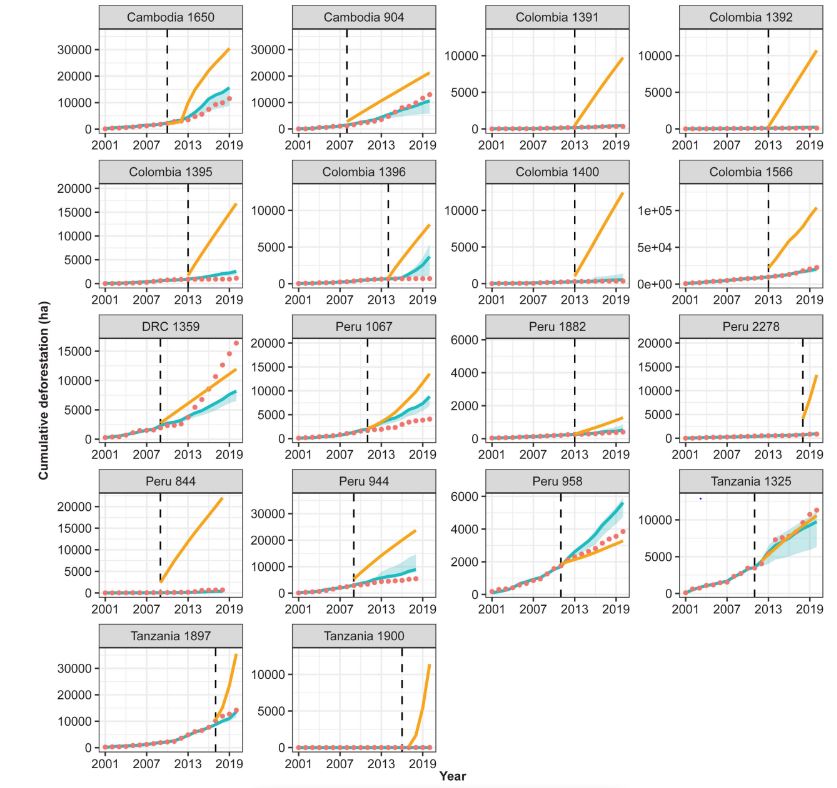August 24, 2023 | Science | Source |
Introduction: Researchers from Europe and the Americas evaluated the effectiveness of voluntary REDD+ (Reducing Emissions from Deforestation and Forest Degradation) projects by reviewing 26 projects across six countries using sophisticated causal inference methods.
Key findings: Surprisingly, most projects did not significantly reduce deforestation as claimed, with actual reductions falling short of expectations. This discrepancy arises from flawed methodologies in establishing deforestation baselines, leading to inflated claims of project success. The findings underscore the urgent need for revising baseline construction methods to ensure accurate attribution of reduced deforestation to projects, safeguarding both incentives for forest conservation and the integrity of global carbon accounting. While some projects demonstrated success, particularly in Peru, challenges persist in realizing the full potential of REDD+ initiatives. Addressing these issues requires collaborative efforts among researchers, practitioners, and policymakers to refine methodologies and enhance the effectiveness of forest conservation strategies on a global scale.
Figure | Cumulative deforestation from the baseline scenarios adopted by the REDD+ projects versus observed cumulative deforestation in the SCs. Orange, REDD+ projects; SCs, blue. Shaded blue areas are possibility intervals. Dotted red lines indicate the observed cumulative deforestation in the project sites. Dashed black lines indicate the project implementation year. Asterisks indicate a significant reduction in deforestation in the REDD+ site compared with the SC based on placebo tests (scales differ).





